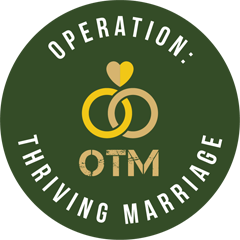One of the common objections we hear to marriage is that it’s “just a piece of paper.”
Non-Christians will often argue that marriage is merely a social institution with no inherent value. The only value to marriage is what people or societies apply to it. In which case, marriage is a construct in which you can choose to or not to participate. Other family structures are equally valid and marriage should not be given preferential treatment.
The Christian argument is a little different. There is not a single reference to anything like a marriage license in the Bible. While it is clear that people got married in the Bible there is no description of the process. Some argue, therefore, that no marriage ceremony is necessary and if they say they’re married then no one can argue otherwise. The legal institution of marriage they argue is a human institution in which there is no need to participate.
Both of these arguments could not be more wrong. Marriage is far more than a social construct with no inherent value. Marriage is also not merely a private commitment between two individuals but a public commitment that has relevance to the local church and the community at large.
I will address the “social institution” argument first. The book The Case for Marriage, by Linda J. Waite and Maggie Gallagher, provides a deep dive into the social research on the topic of marriage. The research is very clear that there is a significant inherent value in marriage. Research shows that married people are healthier, happier, and better off financially than single individuals. The research also shows that married couples are better parents. Marriage also provides a social benefit to the community. And before you argue that the same is true for couples living together that aren’t married, the research is clear on that too. The benefits of marriage do not extend to cohabitating couples. The benefits are only experienced by legally married couples.
In their book, Waite and Gallagher provide detailed information as to the inherent value of marriage and why it provides the benefits it does. Here I will provide what I think is the most important aspect of their findings: commitment and trust. Married couples have a greater commitment to each other and work for the benefit of each other more than any other relationship. Saying this, I do not intend in any way to denigrate the love that two unmarried people feel for each other. That love is real and valuable. Feeling love towards each other, however, is different from being committed to each other. Research shows that the commitment of two married people to each other is greater than the commitment of two unmarried lovers. The commitment that a married couple has for each other leads to increased trust. Married couples legally bound and committed to each other are able to trust each other more. They trust that the actions of their spouse are and will continue to be for the benefit of the couple. They trust that there will be a consistency of love and engagement because of the commitment.
There is a clear benefit to the social institution of marriage that indicates it is more than just a piece of paper. But what about the Christian argument that you don’t need a piece of paper to be married? Afterall, there are no marriage certificates mentioned in the Bible.
While there are no marriage certificates in the Bible there are plenty of marriages and a few weddings. One thing that is very clear about marriage in the Bible is that it is public. In Scripture, marriage is never merely a private relationship. Marriage is always public because marriage changes things. Once you are married, your identity, independence, and image are changed.
Before two people are married, they are two individuals. Their identity is two individuals. They may be known to be connected, but they are still two individuals. Once married, those two individuals are now one couple. In most western cultures, this is often symbolized by the wife taking her husband’s last name. A married couple’s identity has permanently changed.
Before two people are married, they can make decisions independently. Single individuals can own property independently. That changes once they are married. In an instant, everything they own becomes owned jointly. (Yes, there are legal instruments to disrupt joint ownership of property but this disrupts the normal order of things. It is not the norm nor the intent of marriage.) Once a couple is married there are no independent decisions. Every decision, every choice made in a marriage will always affect both spouses. When marrying, two individuals choose to give up their independence for the benefits of being married. This makes marriage public.
Individuals are perceived differently once married. The most obvious aspect of this is, of course, sexual availability. Everyone knows that a married person, no matter how attractive, is not available for a sexual relationship. They’re married. In many traditions, spouses proudly wear wedding rings to display their status as married.
Marriage is not simply a piece of paper. Marriage is a public lifelong commitment to another individual. The piece of paper is the contemporary instrument by which this public bond is instituted and a valuable part of the marriage relationship.
